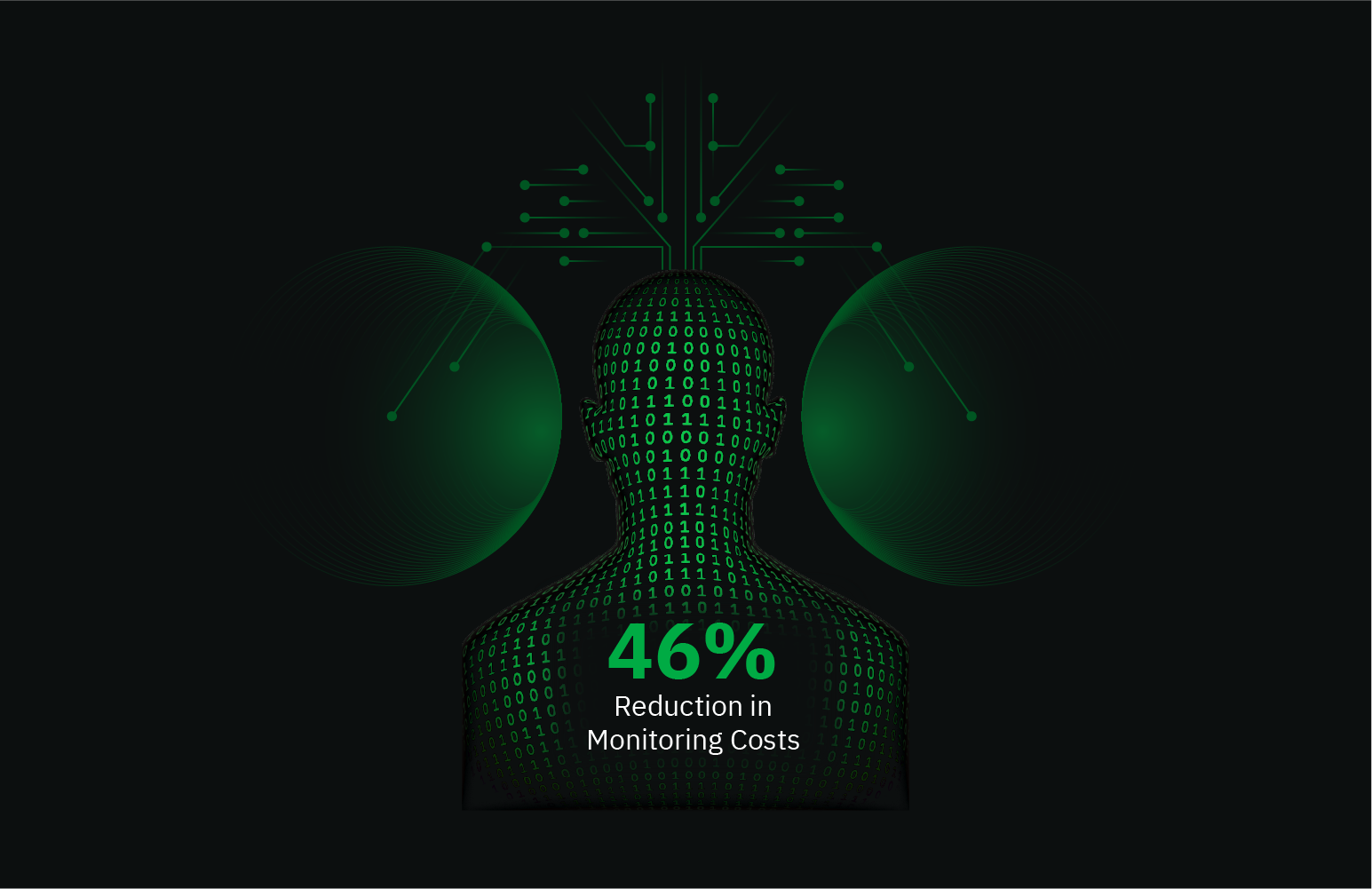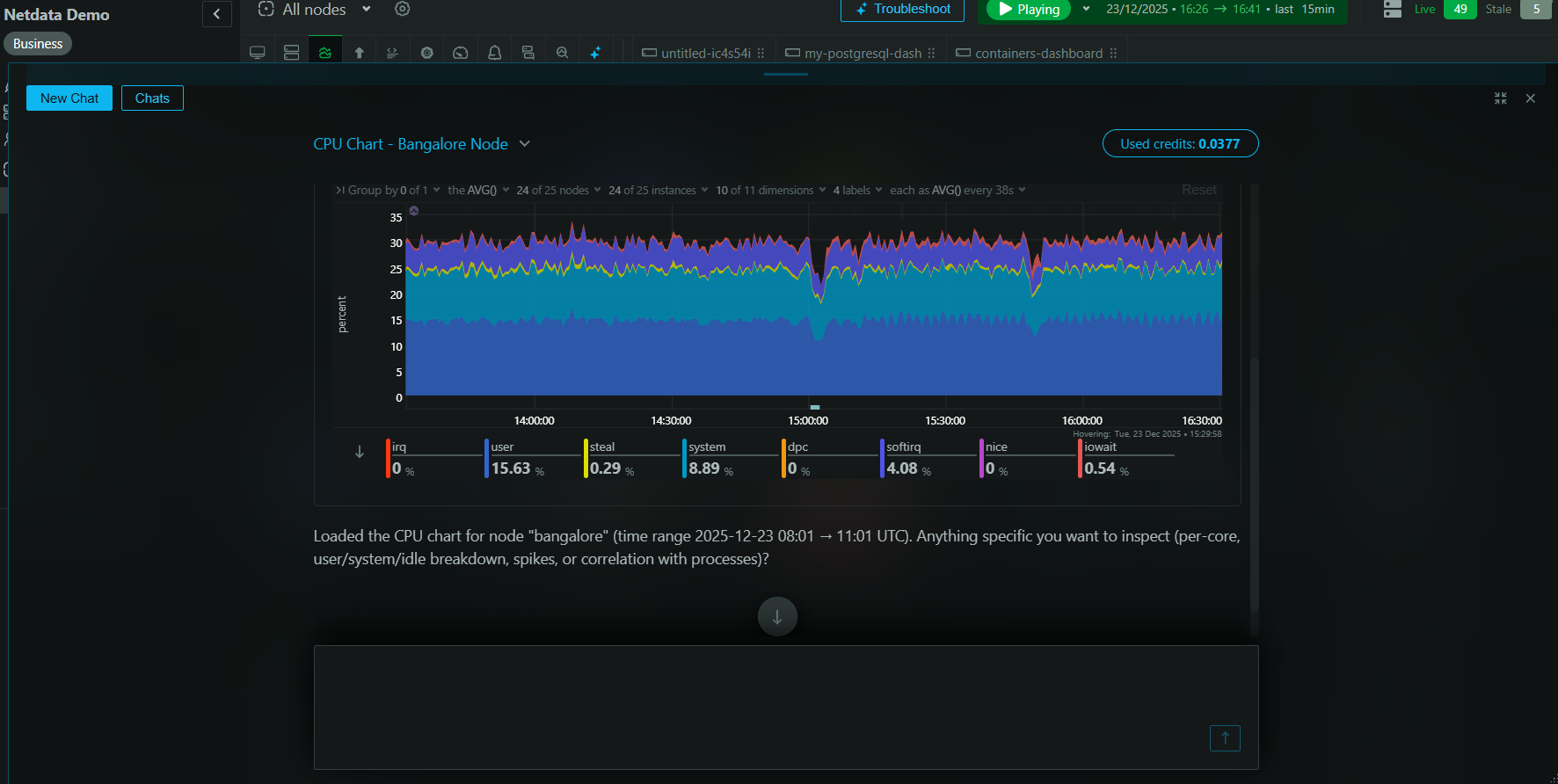Go-ethereum Monitoring
What Is Go-ethereum?
Go-ethereum, often abbreviated as Geth, is one of the most popular implementations of the Ethereum protocol. Written in Go, it enables developers and enthusiasts to run a full Ethereum node, providing functionalities such as mining, creating contracts, and deploying DApps on the Ethereum blockchain. Go-ethereum is a fundamental tool within the blockchain ecosystem and is highly valued for its robustness and performance.
Monitoring Go-ethereum With Netdata
For anyone invested in the blockchain landscape, ensuring optimal performance and reliability of Go-ethereum nodes is crucial. With Netdata, a highly efficient monitoring solution, you can keep an eye on the performance and health of your Go-ethereum instances in real-time. As a powerful Go-ethereum monitoring tool, Netdata offers deep insights into blockchain operations, facilitating rapid troubleshooting and ensuring seamless operations.
Why Is Go-ethereum Monitoring Important?
Monitoring Go-ethereum is essential due to its complex operation environment where performance issues directly impact blockchain transactions and decentralized applications. Efficient monitoring helps in maintaining optimal transaction processing speed, reduces downtime, and ensures up-to-date synchronization with the blockchain. By leveraging tools for monitoring Go-ethereum, stakeholders can assure the security and efficiency of their blockchain activities.
What Are The Benefits Of Using Go-ethereum Monitoring Tools?
Using specialized monitoring tools for Go-ethereum offers numerous benefits:
- Real-time insights: Instantly detect and resolve performance issues before they escalate.
- Comprehensive visibility: Monitor key metrics such as network latency, storage I/O, and transaction pool statuses.
- Scalability: Efficiently manage multiple instances without compromising on performance.
- Automation: Automate alerts and diagnostics for proactive issue resolution.
Understanding Go-ethereum Performance Metrics
To effectively monitor Go-ethereum, it’s important to focus on the following performance metrics:
geth.eth_db_chaindata_ancient_io_rate
Tracks the ancient Chaindata reading and writing rate in bytes per second.
geth.goroutines
Measures the number of goroutines currently in use by Go-ethereum.
geth.chaindata_db_size
Provides the size of the Chaindata in bytes, giving insight into database storage usage.
geth.chainhead
Indicates the current block height of the chainhead, essential for blockchain synchronization.
geth.tx_pool_pending
Shows the number of pending transactions in the transaction pool.
| Metric Name | Description |
|---|---|
| geth.eth_db_chaindata_disk_io_rate | On disk Chaindata read/write speed |
| geth.tx_pool_queued | Transaction count in the queued pool |
| geth.p2p_bandwidth | Bandwidth usage for peer-to-peer communication |
| geth.reorgs | Number of executed reorgs in the chain |
| geth.p2p_peers | Number of active peers connected to the node |
Advanced Go-ethereum Performance Monitoring Techniques
Implement advanced strategies, such as setting up alert thresholds, to notify when performance deviates from expected parameters. Customize dashboards to visualize metrics in a way that aligns with your operational requirements. Regularly update monitoring configurations to incorporate the latest Go-ethereum API changes and optimize the monitoring tools’ overall efficiency.
Diagnose Root Causes Or Performance Issues Using Key Go-ethereum Statistics & Metrics
Use Netdata’s detailed metrics and diagnostic tools to trace performance bottlenecks to their root causes. Employ historical data to identify trends and forecast potential future issues. For real-time diagnostics and immediate action, sign up for a Free Trial of Netdata today.
FAQs
What Is Go-ethereum Monitoring?
Go-ethereum monitoring involves tracking the performance and health metrics of Geth nodes to ensure seamless blockchain operations and quickly address any issues.
Why Is Go-ethereum Monitoring Important?
It ensures that blockchain operations remain efficient, secure, and synchronized, reducing the risk of transaction delays and errors in decentralized applications.
What Does A Go-ethereum Monitor Do?
A Go-ethereum monitor provides real-time and historical data on multiple performance metrics, offering insights and alerting on potential issues.
How Can I Monitor Go-ethereum In Real Time?
Utilize Netdata’s robust free trial platform to set up real-time monitoring of your Go-ethereum nodes, with easy configuration and immediate visibility into performance.
View Netdata Live Demo or sign up for a Free Trial to enhance your Go-ethereum monitoring capabilities today.









